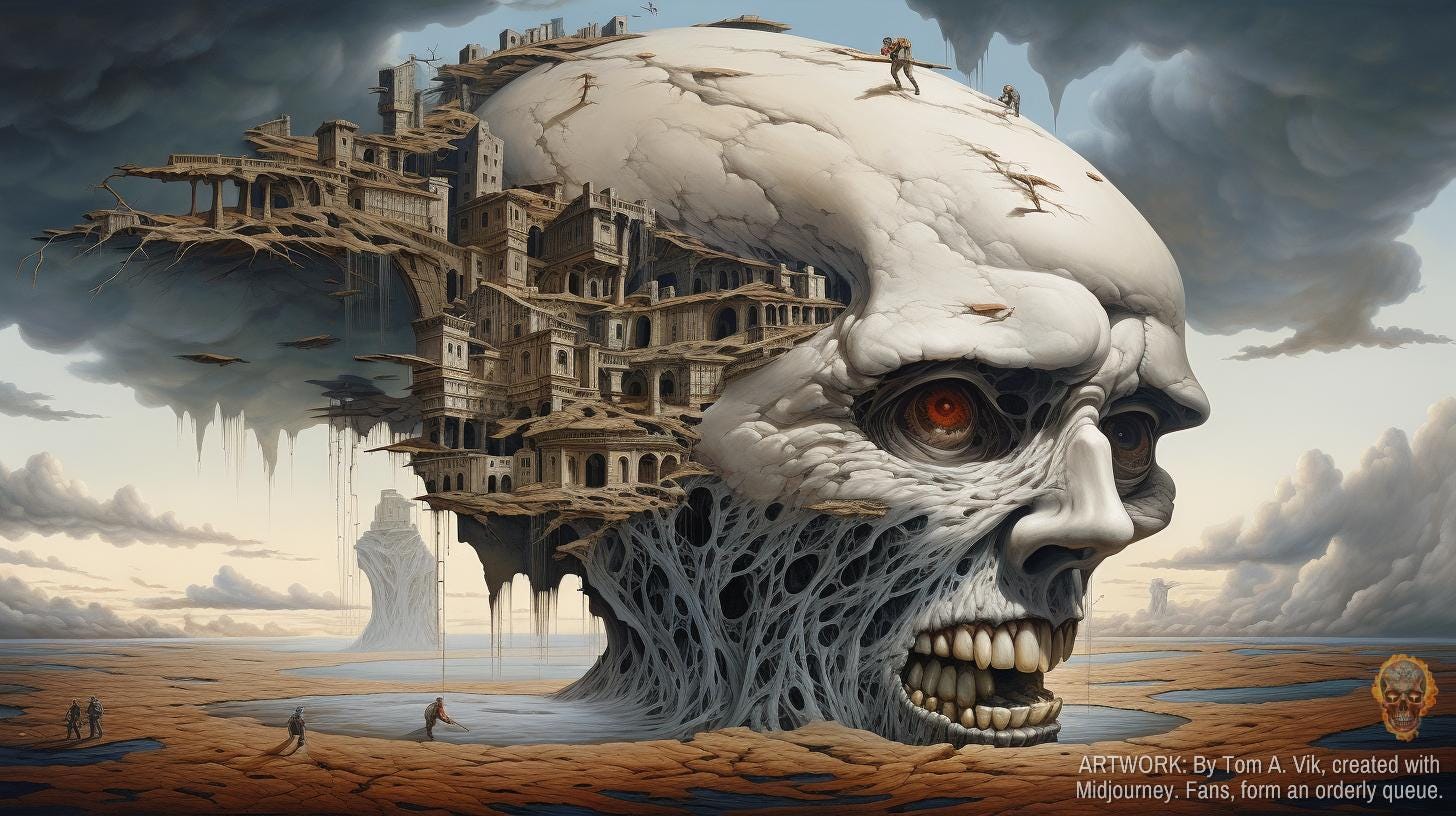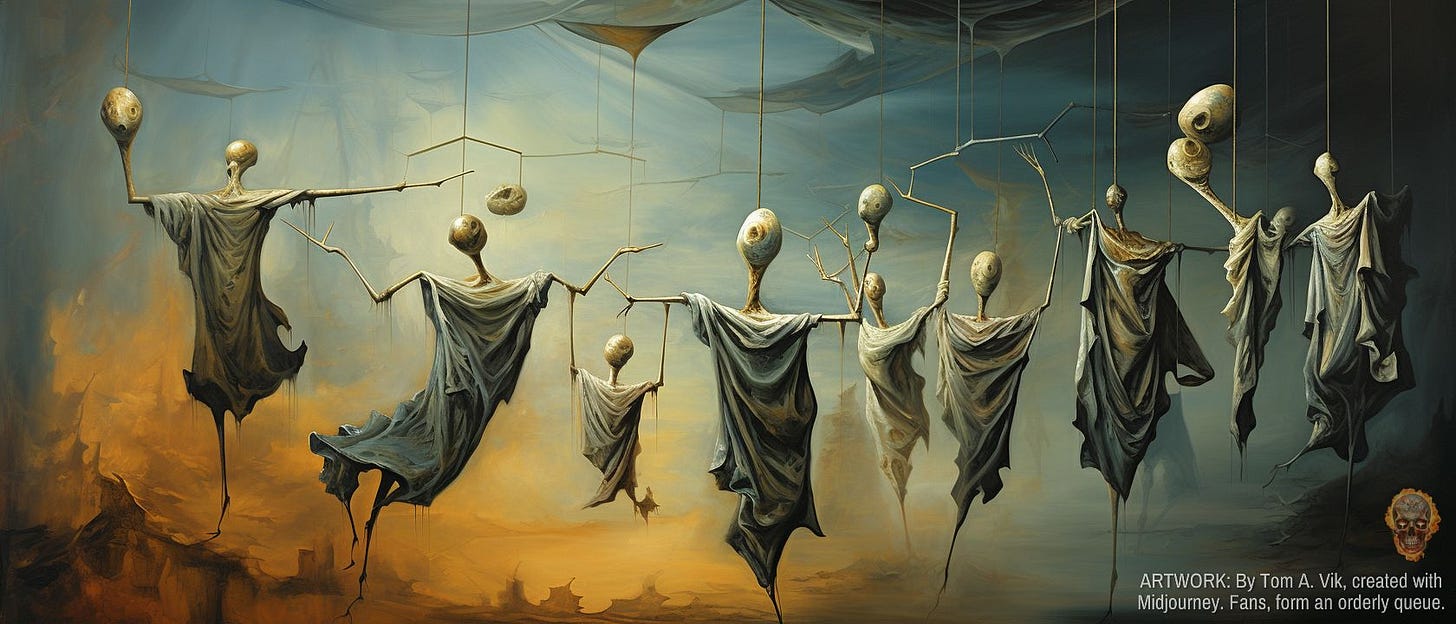The Intellectual Mirage: How Smart People Outsmart Themselves
A Journey Beyond Intelligence: Unraveling the Paradox of the Mind
You think you're smart.
Perhaps you are. But here's the kicker: the smarter you believe you are, the more adept you become at fooling yourself.
It’s a paradox, isn’t it? Intelligence, with its shiny allure, often leads us down a labyrinth of our own intricate design, blinding us to the simplest of truths. This isn't about discrediting intelligence; it's about questioning its throne at the top of our value system. Wisdom, the kind that slices through life's complexities, often lies in the art of subtraction rather than addition.
So, let's dive into this intellectual mirage, not to diminish the value of intelligence, but to explore the possibility that true insight comes from letting go, not accumulating.
Labyrinth of Complexity: Illusion of Intellectual Mastery
Intelligence is often equated with knowledge, a dangerous misconception.
Consider the image of a scholar, surrounded by mountains of books, each page a testament to their intellect. Impressive? Sure. But here's the twist: knowledge and wisdom are not synonymous.
Wisdom isn't about how much you know; it's about understanding the limitations of that knowledge. It's about seeing through the smokescreen of complexity that intellect often creates. Let's take a detour into Greek mythology. Daedalus, the genius inventor, created the Labyrinth…
…a complex structure designed to trap the Minotaur.
Yet, in his brilliance, he became a prisoner of his own creation, just like the Minotaur. This tale isn't just a myth; it's a mirror reflecting our own intellectual entrapments.
We build labyrinths of theories and concepts, only to find ourselves lost within them, forgetting the simplicity of the exit. Here's something you might not know: intelligence often blinds. It creates a mirage, a false sense of mastery over life's mysteries. The brightest minds, hailed as our modern-day Daedaluses, often miss the forest for the trees.
They're lost in their own labyrinths, mistaking the walls they've built for the horizon. This is not about the folly of intelligence…
…but about recognizing its blind spots.
Puppeteers of Complexity: Entangled in Their Own Strings
In our relentless pursuit of intellectual achievement…
…we often become puppeteers, manipulating strings of complex ideas and theories. But here's the irony: in orchestrating this complexity, we become entangled in it.
Our achievements, though admirable, can become our shackles, limiting our view to the stage we've set for ourselves. Progress, especially of the intellectual kind, is a seductive narrative. We equate it with moving forward, with evolution. But what if this progression is actually a regression? What if, in adding layers of complexity to our understanding, we're moving further away from the essence of truth? It's a provocative thought, isn't it? The idea that our intellectual advancements might be a backward journey.
Pride in our intellectual accomplishments can be our greatest trap. It's a subtle one, masked in the guise of achievement and recognition. But here's the catch: this pride can blind us to the simplicity and beauty of the unadorned truth. We become so fixated on our intellectual constructs that we fail to see the world as it truly is…
…simple, unvarnished, and profoundly beautiful.
Letting Go: Embracing Simplicity in a Complex World
In a world that glorifies intellectual accumulation, the idea of unlearning seems counterintuitive, almost blasphemous.
But here's the essence of true wisdom: it's not about adding more to our already overloaded minds; it's about letting go, stripping away the non-essential, and embracing simplicity.
It's about unlearning the layers of complexity we've wrapped ourselves in. Simplicity is often overlooked, mistaken for ignorance or naivety. But there's a profound clarity that comes with simplicity. It's like clearing the fog that shrouds our view, revealing the landscape in its pure, unembellished form. In simplicity, there's an understanding that transcends the intellectual acrobatics we're so fond of. Letting go of our intellectual constructs requires courage.
It means stepping into the unknown, leaving behind the safety of our carefully constructed theories and ideas. It's a leap of faith, a dive into the depths of wisdom that lies beyond the reach of intellect. And in that space, we find something extraordinary…
…a truth so simple, yet so profound, that it eludes the grasp of the sharpest minds.
The Paradox of Intelligence and the Path to True Insight
The journey beyond the intellectual mirage is a journey inward, a dive into the depths of our own consciousness.
It's a path less traveled, one that requires us to shed the layers of complexity and embrace the simplicity of truth. It's about understanding that intelligence, while valuable, is not the pinnacle of human achievement. Wisdom, the kind that sees through the mirage, is the true north star.
Here's the takeaway: let go. Let go of the need to know, to accumulate, to conquer with intellect. Embrace the beauty of not knowing, of being a perpetual student of life. It's in this space of humility and openness that we find true understanding, a wisdom that transcends the intellectual games we play.
Remember, the smartest among us might just be the ones who realize how little they actually know.









